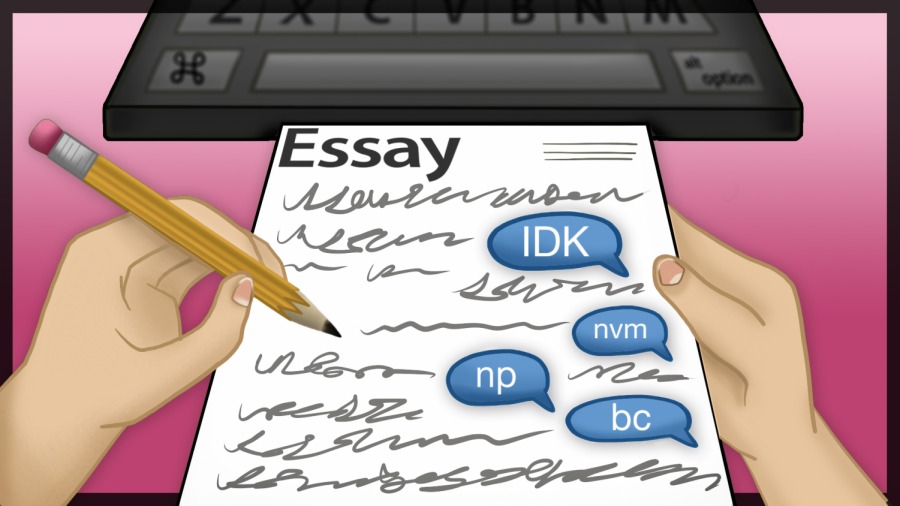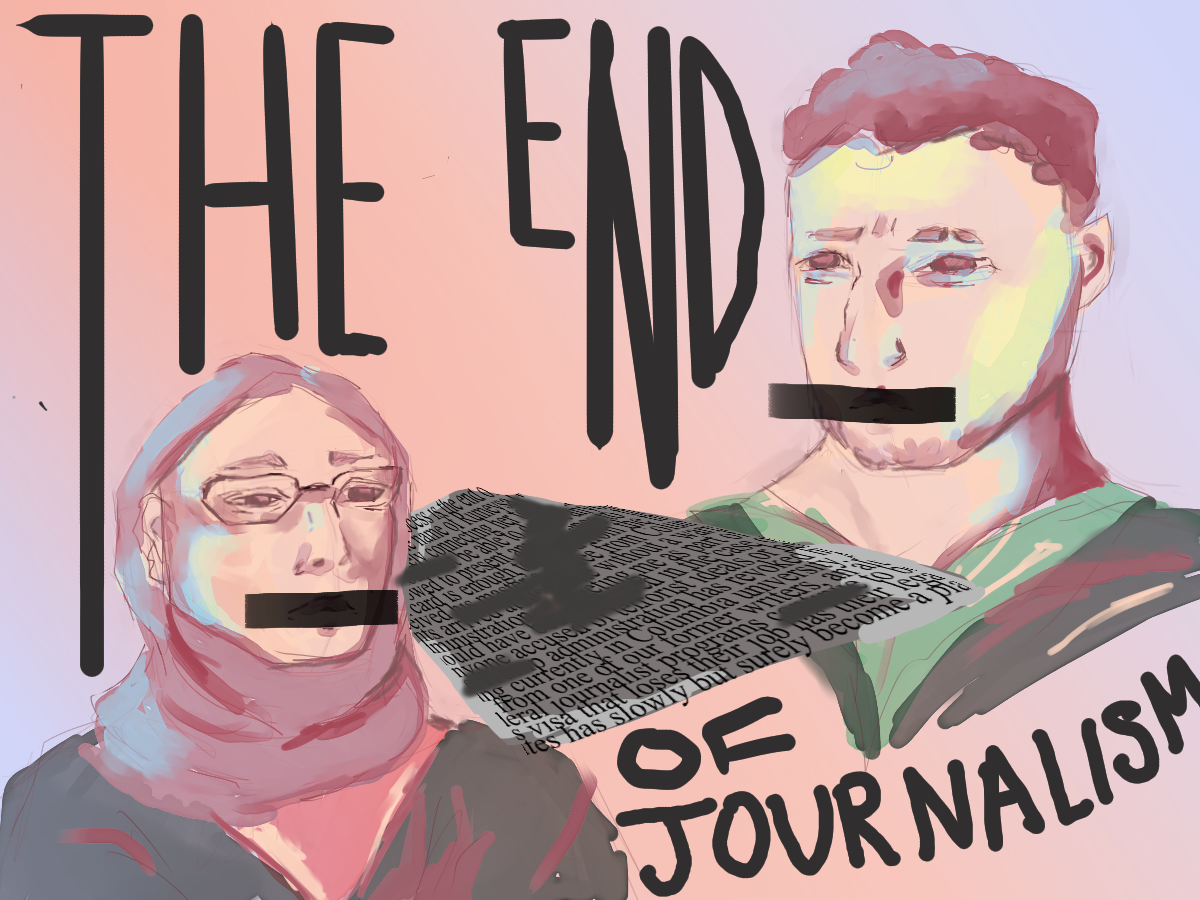[Opinion] Internet slang affects students in the classroom
Due to students using slang terms while on the internet, they lack reading and writing skills as they don’t know any other way to communicate without them. Graphic by Julia Landy
April 16, 2021
As a result of students spending the majority of their day texting or perusing the internet, many lack reading and writing skills. Oftentimes, students replace most of their vocabulary with slang terms.
Slang terms, like IDK (I don’t know), SMH (shaking my head) and NVM (nevermind), have become a common sight on students’ assignments. Many teachers are unsure how to combat this problem as it continues to grow within our virtual environment.
Due to students being on the internet all day, they may have trouble communicating in class after spending a large amount of their time using only slang terms. When students are sending an email or communicating with a teacher in class, they may talk and write in this improper way.
According to a survey of 700 students ages 12 to 17 by the Pew Internet & American Life Project, 85% of the respondents reported using a form of electronic communication, whether it be social media, text messaging or instant messaging.
This survey suggests that due to students frequently communicating electronically, they tend to use slang more often, making it harder for the terms to not “leak” into the classroom setting.
Students using slang while communicating can also be hard for older adults to understand and translate.
Critics may argue that students should not have to be the ones to change their slang terms and instead, adults should learn the terms in order to understand what students are reading and writing. This is misguided as students should know not to use these terms in the classroom as it is not used in the workforce today.
Students also like to use “shorthand writing,” which is writing that uses symbols, words or phrases to help make a word or phrase shorter. For example, “cuz” is used in place of “because.” In addition to this, teachers also see that students are abbreviating words while not using proper capitalization or punctuation.
A survey conducted in the USA by researchers found that 64% of students admitted to using slang terms within their schoolwork.
While the rise of texting has impaired writing skills, educators are yet to figure out a solution to this problem. The future remains unclear as generations of students continue to grow up with a rapid rate of technology that embraces slang. Teachers must continue to point out the difference between professional writing and slang to students since it’s very crucial for students to understand the difference.
As social media continues to grow, students must make a choice whether to use internet slang to sound cool, or to not use internet slang and succeed down the road with reading, writing and other skills.












